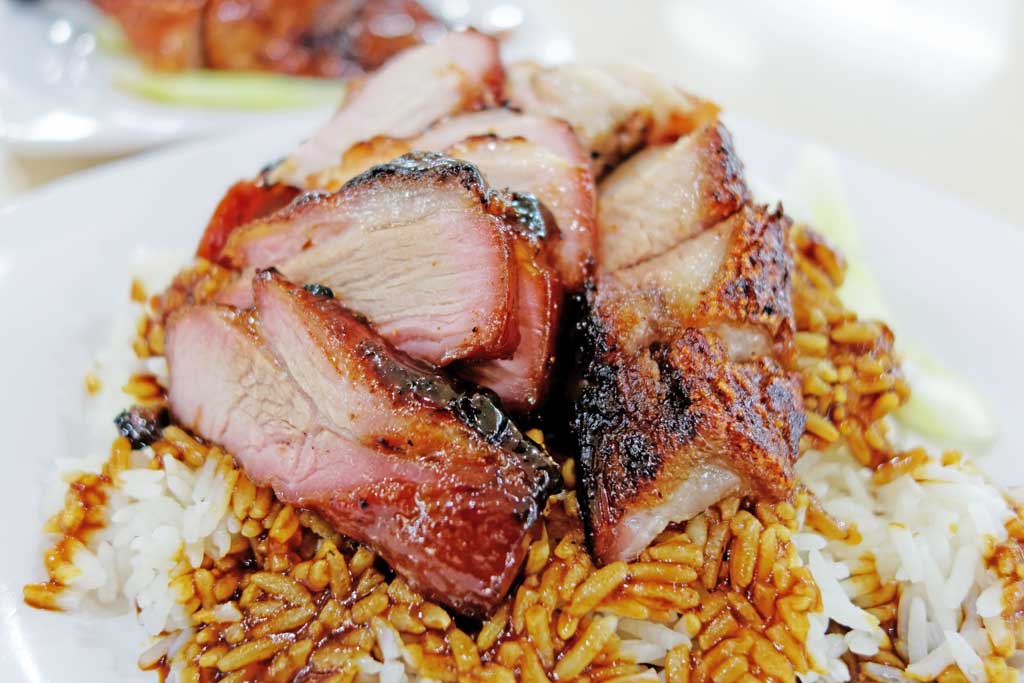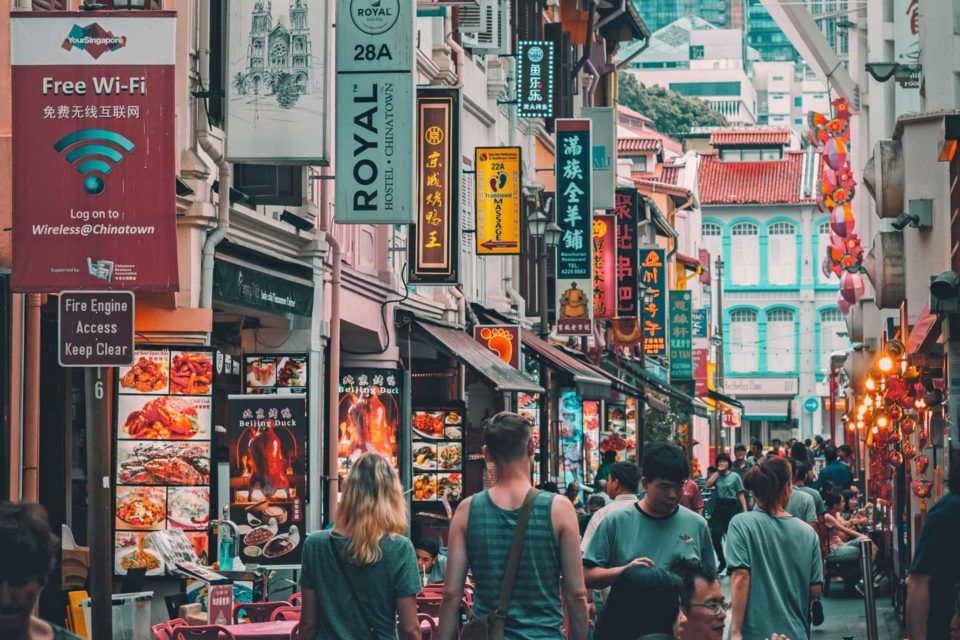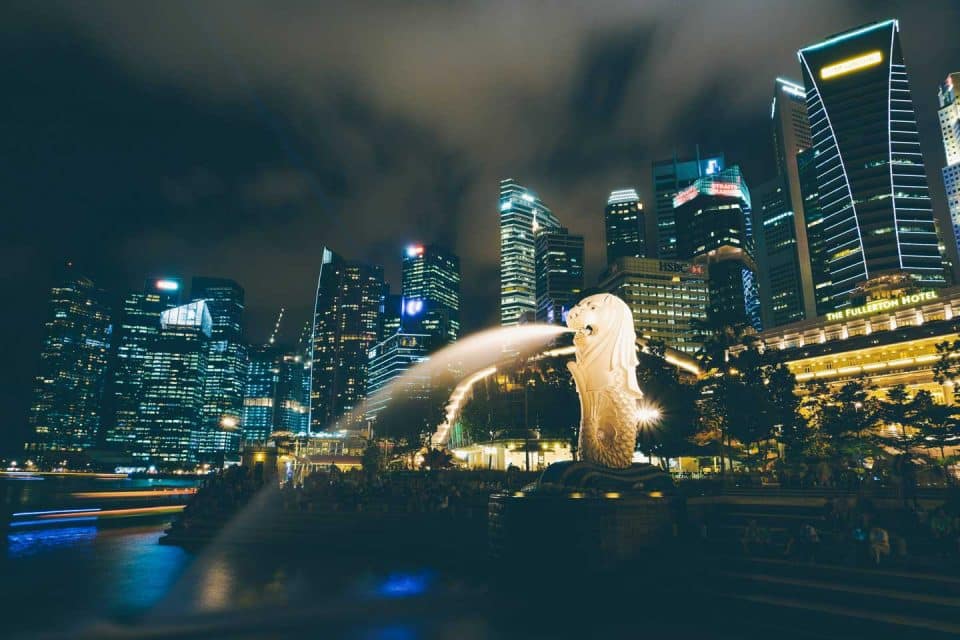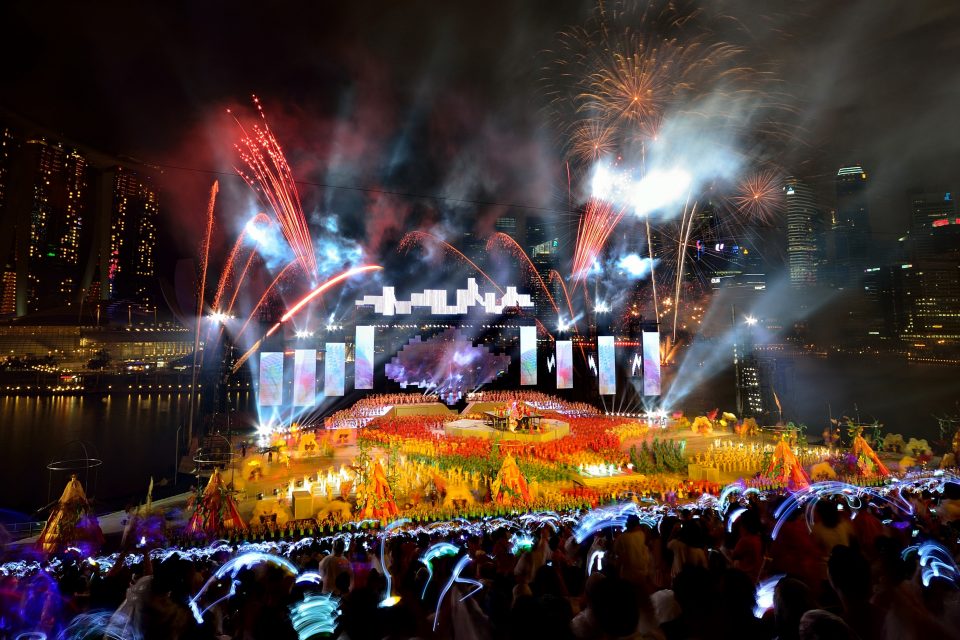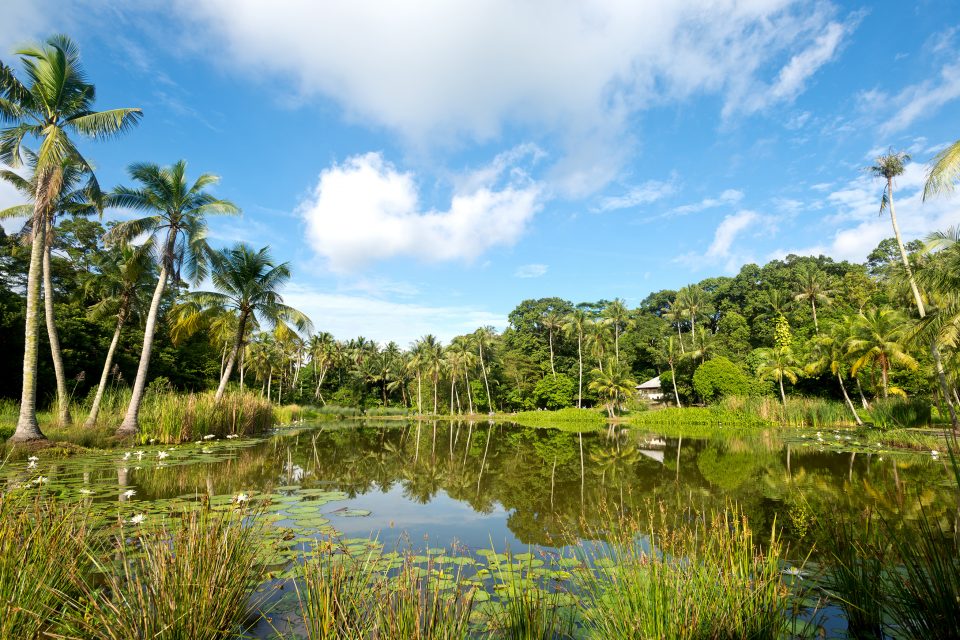SINGAPORE TRAVEL GUIDE CONTENTS
At a Glance | Trip Planning | Things to Do | What to Eat | Places to Stay | Latest
Singapore At a Glance
Singapore, often called the Lion City, is an island city-state located off the southern coast of Malaysia. One of the most interesting aspects of the city is its melding of different Asian cultures and ethnicities. From Chinatown to Little India, you’ll find aspects of many different Asian nations in Singapore.
The island may be small, but there are tons of amazing things to do, see, and eat while you’re there.Singapore is one of the most expensive and prosperous countries in the world, but even if you’re traveling on a budget, there’s plenty to do and see here that won’t break your bank.
Singapore Quick Information
Currency: Singapore Dollar
Electricity Socket: 220V AC electricity. Power outlets are two-prong round or flat sockets, the same as used in Europe and the UK. Be sure to pack a
universal travel adaptorso you can still use all your electronic gadgets.
Visa: For travelers from most countries, a visa is not required to visit Singapore unless you are staying more than 90 days. Just make sure your passport is valid for at least six months from when you go. For residents of certain countries in the Middle East, Africa, and parts of Asia, a visa might be required. The information and country specifics, as well as a downloadable visa application, are available online.
Safety: Singapore is one of the safest places you can visit in Asia. This is due in part to some very stringent laws in place there. Drug offenses can carry the death penalty, and even shoplifting can result in a few months in prison. This isn’t the best place to try out your criminal side! But for travelers, even solo women, you can feel safe and comfortable during your visit.
.Occasionally theft and other smaller crimes occur, so just be careful to keep an eye on your belongings when you travel. Don’t leave your bag on the beach when you go for a swim, and be careful if you’re out drinking or partying.
It’s advisable to only use metered taxis to avoid getting overcharged. It’s not very common, but taxi drivers do sometimes overcharge foreigners. Keep your receipts in case you need to dispute any charges.
At certain times of the year, the air quality can get pretty bad as the city fills with haze and smog. If the air is hazy, wear a mask or opt to exercise indoors instead of running outside.
Obviously, you should have travel insurance before traveling to other countries. For this, we advise checking out Safety Wing as they have great adventure travel coverage.
Language: Singapore has four official languages: English, Malay, Mandarin, and Tamil. In total though, there are at least 20 different languages spoken in Singapore. Luckily for most travelers, English is spoken by the vast majority of Singapore residents, so you won’t have any trouble getting around.
Festivals and Celebrations:
Chinese New Year: This is probably Singapore’s biggest celebration and one of the most-loved holidays of the year. While celebrations will pop up all over, the best and biggest are in Chinatown. If you’re in Singapore in January or February, you won’t want to miss this event. You’ll see parades, festivals, street vendors, and performances everywhere in the city.
Vesak Day: An important holiday for the Buddhist community in Singapore, Vesak Day occurs in May and celebrates the birth, enlightenment, and death of the Buddha. While this is definitely a more solemn holiday than the New Year, temples and shrines will still be brightly adorned, and other events like vegetarian food fairs and talks will be happening, too.
Hari Raya: The Malay-Muslim community in Singapore celebrates Eid to mark the end of the fasting month of Ramadan. Check out the neighborhoods of Geylang Serai and Arab Street for festive light-ups, bazaars, and an all-around merry atmosphere. Hari Raya celebrations are based on the Islamic calendar and thus changes from year to year; it’s a good idea to Google the date to check when it’s happening!
Deepavali: Deepavali, or the Festival of Lights, celebrates the triumph of light over dark and good over evil in the Hindu tradition. During this celebration (usually in October or November), Little India comes alive with bright lights, vibrant colors, and high-energy festivities.
Thaipusam: This Hindu festival in January is not for the faint of heart. As a tribute to Lord Subramanium, a procession of followers can be seen carrying spiked alters that actually pierce their bodies. Witnessing this is definitely a memorable experience, but might also make you feel a little squeamish!
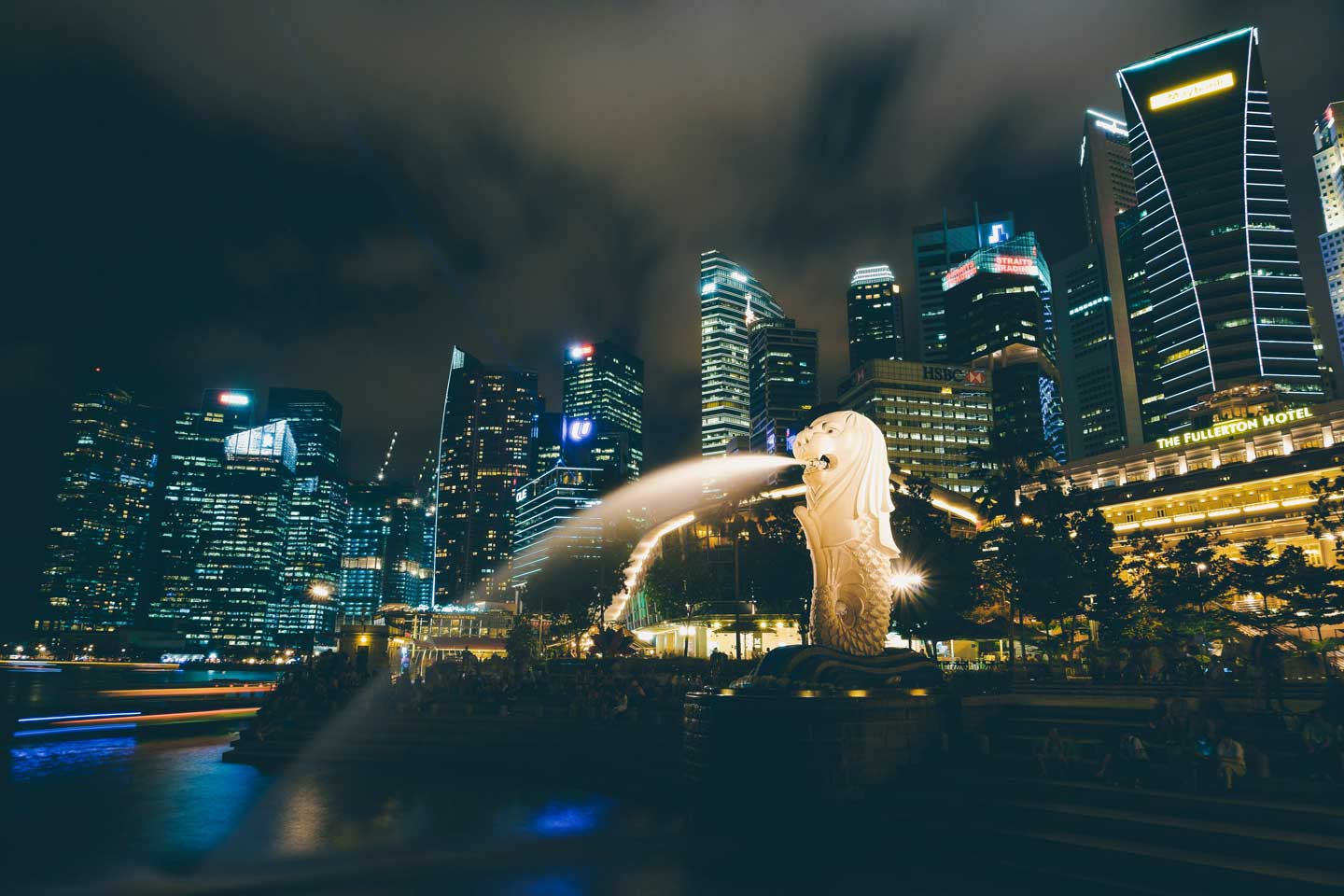
Singapore Trip Planning
Best Time to Go
The weather in Singapore is pretty perfect (as long as you like warm weather). The tropical climate means heat and humidity year-round, but it’s not as bad as in some places like Thailand, where the summer temperatures can reach 110 degrees Fahrenheit.
In Singapore, the wetter season runs from November to January, but there’s really not much of a difference in the temperatures. Year-round, temps stay roughly between 75 and 88 degrees Fahrenheit.
Keep in mind though, that Singapore can be expensive, especially around big holidays like the Chinese New Year, so you may want to plan your trip on off times when prices might be lower.
Singapore also plays host to the only F1 night race in the world, which typically occurs sometime in September. If you’re a racing fan, love concerts (popular artists are invited to hold concerts during the race weekend), or just want to experience something cool, mark this event on your calendar and book your flights and accommodations in advance!
Rough Budget
Singapore is infamous for its high costs. Expensive cities are a backpacker’s nightmare!
That said, while the costs may seem high compared to other Southeast Asian countries, they’re nothing compared to the prices in Western cities. In order to stay comfortably in Singapore, you’re going to want to budget in roughly $60-$100 a day for all your needs, depending on your travel style.

Accommodation
Budget: $13-$35 (dorm) $40-$70 (private room)
Mid-range: $80-$120
Splurge: $120++

Food (Typical Meal For One)
Street food: $3-$8
Mid-range restaurant: $8-$20
Gourmet meals: $25-$150++ (There are lots of fine dining options in Singapore if you’re willing to splurge!)
Beer: $4-$7

Transport
Train: The MRT subway and train system is one of the most convenient ways of exploring the city. ($7)
Trolley: If you’re looking for an easy way to sightsee, the hop-on-hop-off trolley is great. For $8 you can get all day access to the trolleys which travels through the city.
What to Pack for Traveling Singapore
Singapore is a city-state, so you won’t need your trekking clothes or tents here. Bring clothes appropriate for warm weather, as well as a dressier outfit or two if you want to go out and look the part! Swimsuits, sunscreen, and mosquito spray are musts.
If you’re visiting between November and January, it’s a good idea to bring a rain jacket or umbrella as well as a sweater or light jacket as the evenings can be cool and rain can be expected at any time. Generally, though, there’s nothing you need to buy specifically for traveling to Singapore.
It’s a very modern island with all the amenities you could ask for. For a complete list of what to bring, take a look at out complete Southeast Asia Packing List.
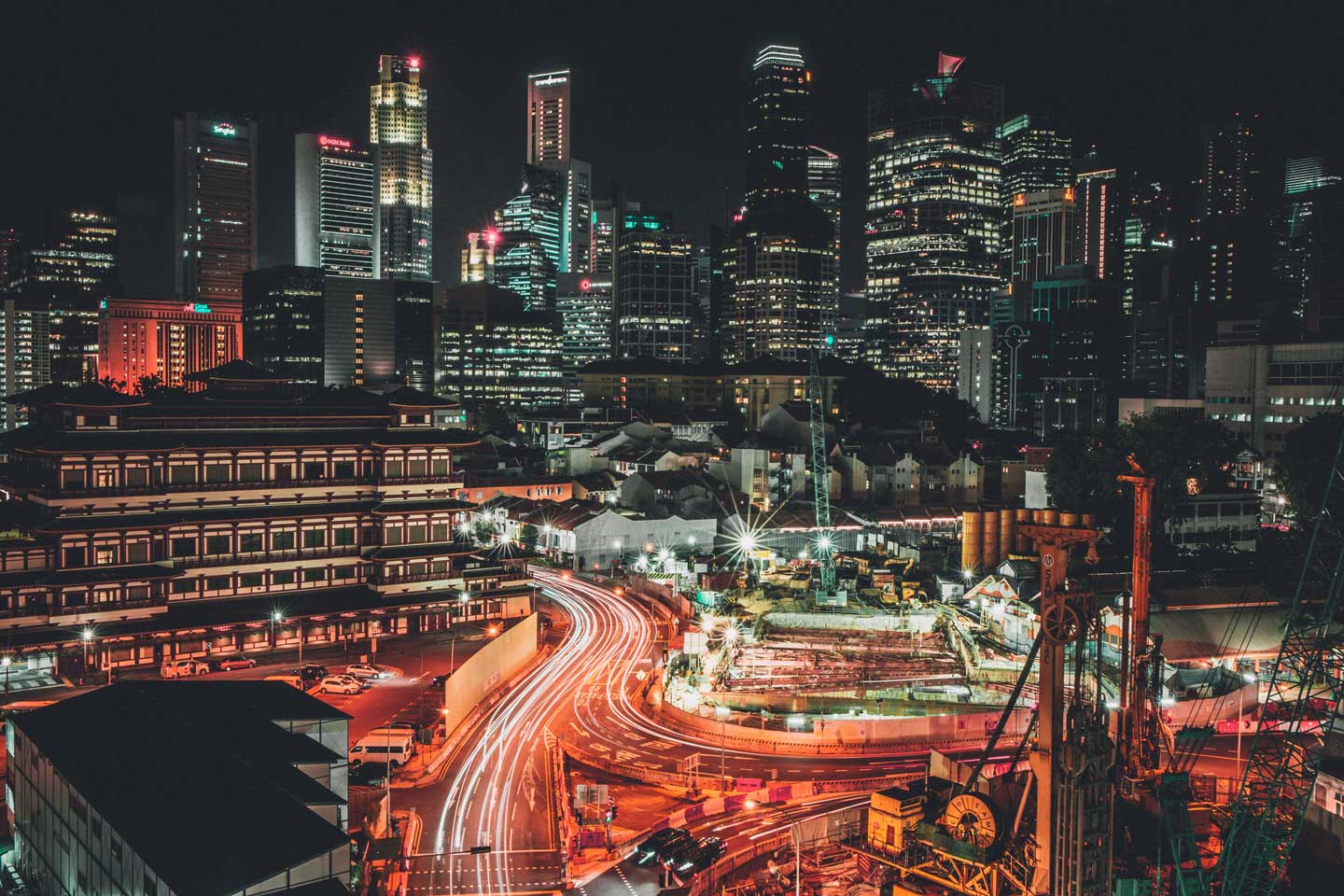
Best Things to Do in Singapore
Although Singapore is a relatively small city, there are heaps of things to do. From enjoying their many rooftop bars (and pools) to enjoying their many cultural highlights within the city, there’s something for everyone.
If you want to take a tour of the city, we recommend booking a local Singapore city tour which shows you around the highlights of the city. Alternatively, you can also book a segway city tour or explore and wander around on your own (it’s easy to get around!).
Listed below are a few of our top picks on the best things to do in Singapore.
Visit Gardens by the Bay
This is perhaps one of the most well-known landmarks in Singapore. Beautifully melding the urban and natural, the Gardens house the world’s largest greenhouse, the world’s largest indoor waterfall, and a collection of giant “supertrees.”
This is an absolute must-see during your visit!
Insider Tip: Avoid the long lines and book a combo ticket to see Gardens by the Bay, the Flower Dome, the OCBC Skyway, and the Cloud Forest Garden.
Go to the Asian Civilizations Museum
Singapore is a melting pot of different cultures and identities. It’s a unique place with a rich history that’s definitely worth exploring. The Asian Civilizations Museum offers a broad history of Asian art and culture. There’s even an exhibit on the Tang Shipwreck, which is pretty cool.
Wander Around the Singapore Botanic Gardens
In a city as big as Singapore, you’d think there wouldn’t be much room for natural wonders. But the Botanic Gardens are a truly impressive sight.
The 60-acre garden complex was made a UNESCO World Heritage Site and is full of a vast variety of amazing plants. It’s huge, so if you want to explore most of it you should block off at least a couple of hours.
Eat Your Way Through Chinatown, Little India, and Arab Street
Singapore is a rich tapestry of different cultures woven together. While you’ll see elements of China and India (as well as other countries) throughout the city, there’s no better place to experience it than in Chinatown, Little India, and Arab Street.
Take in the beauty of the Sultan Mosque in the Arab Quarter, or check out the Chinese Heritage Center and a plethora of mom-and-pop shops. Wander the streets of Little India and seek out the little eateries with yummy food.
Foodie Tip: If you’re a big foodie, Singapore will be HEAVEN for you. Since a lot of their culinary delicacies are located in small unassuming food stalls, listed below are a few of our recommended food tours.
Recommended Food Tours in Singapore
- Private Guided Food Tour: Explore the best of Singapore’s cultural heritage and sample a bit of Chinese, Malay, and Indian cuisine in this delicious gastronomic tour.
- Singapore Cable Car Dining Experience: If you’re looking for a unique experience (perfect for date nights!), why not look have dinner in your private cable car booth overlooking the entire Singaporean skyline?
- Chinatown Food Tour: Visit the largest hawker center in Singapore and feast your way through the delicious meals found all over Chinatown. This tour is a must!
- Singapore by Night Tour: Explore the beauty of Singapore in the evenings while enjoying a few delicious snacks and delicacies along the way.
Ride the Singapore Flyer
While not at all unique to Singapore, the ferris wheel is an attraction that continues to lure visitors of all ages.
As long as you’re not bothered by heights, this is a great way to take in some incredible panoramic views of the city from high above. Supposedly, you can even see Malaysia and Indonesia from the top! Click here to book tickets (comes with a free Singapore Sling cocktail).
If you’re looking for a few unusual things to do, you can check our off-the-beaten-path guide to Singapore, taking you through a few lesser-known areas and attractions.
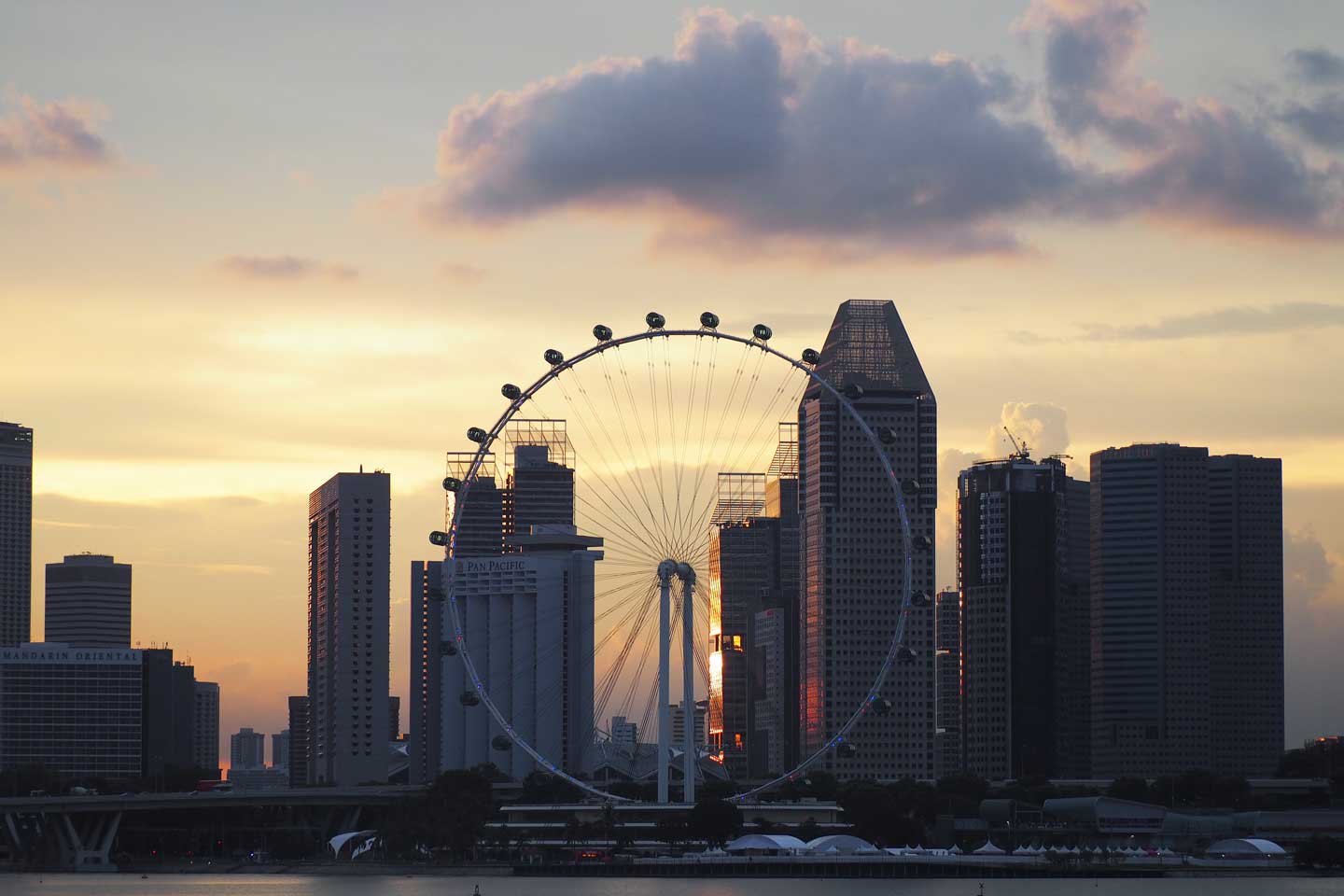
What to Eat in Singapore
Singapore is a unique place that combines the tastes and cultures of several nearby countries. Chinese and Malay flavors blend perfectly into innovative new dishes, while Indian spices and curries are prominent in their own dishes as well.
The food in Singapore is fantastic and varied, and whether you’re spending $5 at a street stall or $100 at a restaurant, it’ll be hard not to fall in love with these dishes.
Hainanese Chicken Rice
Often touted as the national dish of Singapore, this simple meal combines boiled chicken with rice cooked in chicken broth. You’ll find this in hundreds of restaurants and street stalls, each with a slightly varied recipe. The dish is served with a flavorful sauce and a side of cooked greens.
Laksa
This Malay dish consists of a noodle base combined with a gravy or sauce, meat, and vegetables. The exact recipe will vary depending on where you go. Some have coconut milk bases, while others feature thinner broths. I’d recommend trying it at a few different spots to see which you like the best!
Char Kway Teow
This fried noodle dish is a local favorite. Wide rice noodles are stir-fried in a wok with dark soy sauce, egg, chilis, and other spices, and usually topped with Chinese sausage. The result is more sweet than spicy with a soft texture.
Bak Chor Mee
Bar Chor Mee is a simple noodle dish that, although authentically Singaporean, has similar iterations throughout Southeast Asia. Egg noodles are topped with minced pork and pork balls, chilis spices, and a thin sauce. It’s usually served with a broth soup on the side.
Kaya Toast
This is definitely not what I think of when I think of Asian food. But there’s a wealth of variety in Singaporean cuisine (lest you think it’s all noodles and rice)!
Kaya toast is popular for breakfast or as an afternoon snack. Thick slices of toast are topped with kaya jam–a combination of coconut, sugar, egg and served with butter. Perfect with your morning coffee or an afternoon cup of tea!
Want to try your hand at making some Singaporean dishes? A cooking class is a great way to learn more about Singapore’s food culture and you get the inside look on how some of the delish dishes are made. Check out these amazing cooking classes in Singapore!
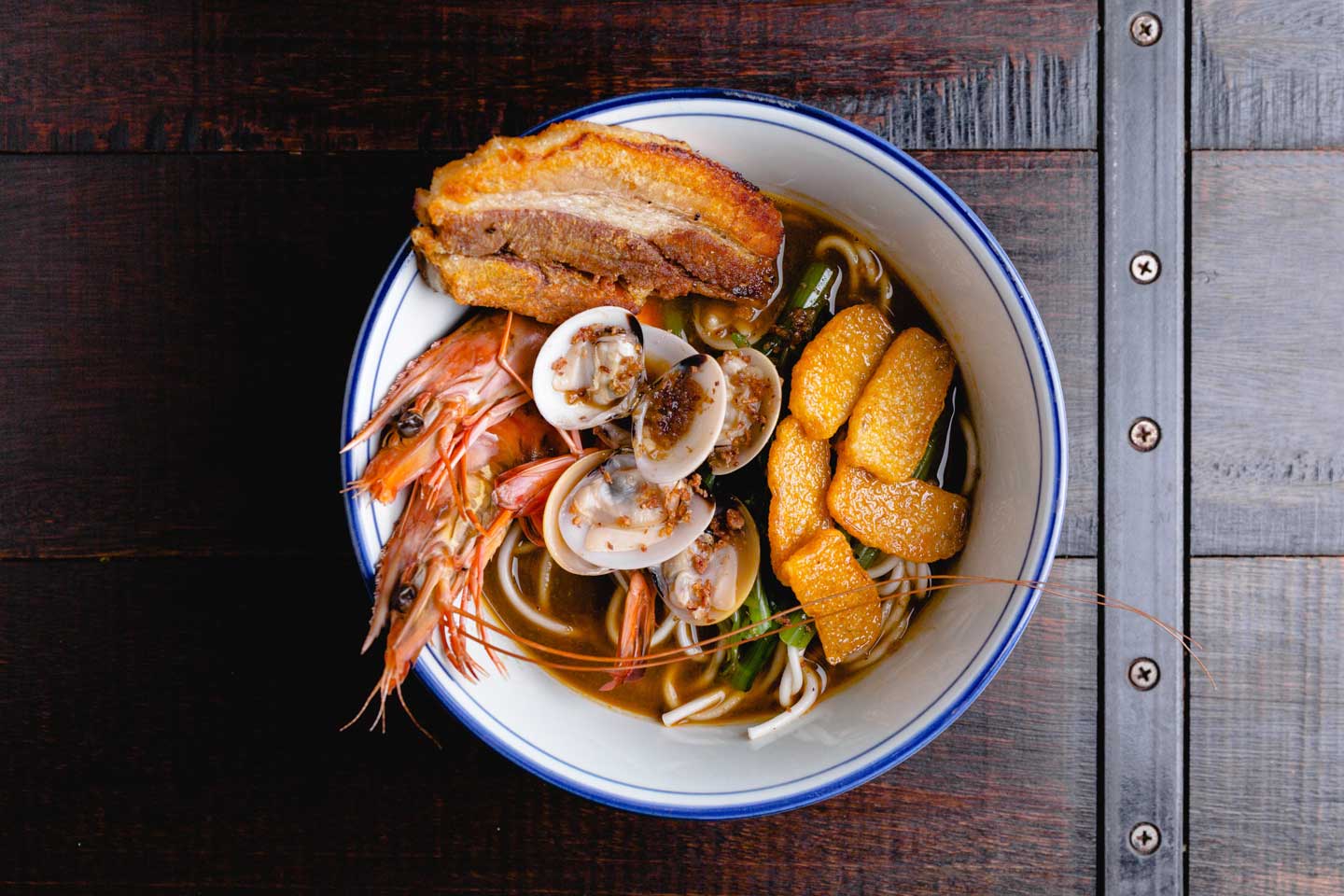
Places to Stay in Singapore
Hotels and hostels are much more expensive in Singapore than in many other parts of Asia, but there are still options for almost every budget. While it’s much easier to find expensive hotels, there are many cheaper options ranging from dorms to double rooms available.
If you’ve got the budget, Singapore is a great place to splurge on a nicer hotel room as the views are usually spectacular. If you’re traveling during peak season or holidays, it is best to book your accommodations in advance. We recommend checking sites like Booking.com and Agoda.
Here is our list of top recommendations on where to stay in Singapore.
Books to Read When Traveling Singapore
Listed below are a few of my recommendations for books to read when traveling Singapore. Hopefully, they will either help you plan your trip or provide you with some travel inspiration.
Top 10 Singapore: If you’re looking for a travel guide to help you plan, we recommend DK’s top 10 Singapore guide which features all the best things you can’t miss.
From Third World to First: For those of you fascinated with history and economics, this book by Singapore’s founding prime minister, Lee Kuan Yew, talks about how Singapore grew as a superpower in Asia.
Crazy Rich Asians: If you’re looking for a lighthearted poolside ride, I highly recommend this book which is part of a trilogy featuring the insane life of the rich and glamorous in Singapore.
